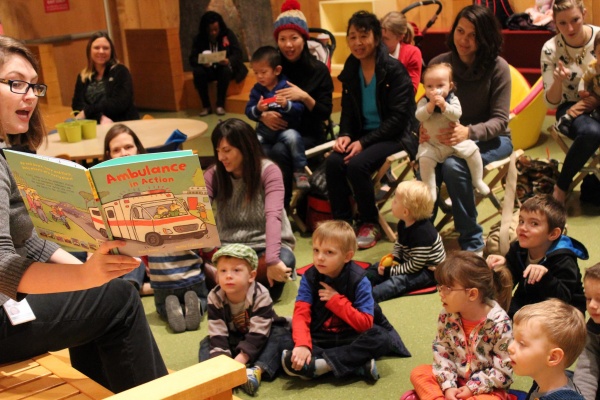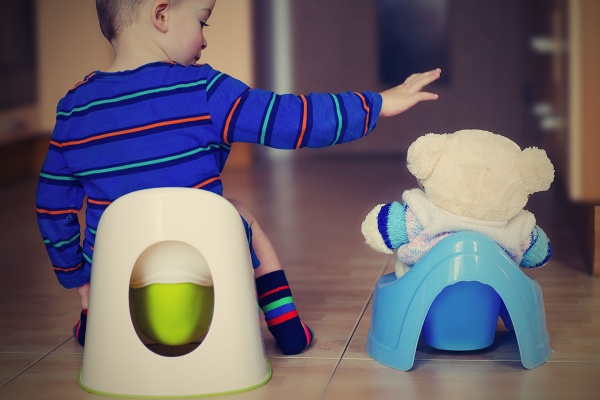

Stop Telling Your Kids They're Smart
Here’s a hot topic for all caring parents. What can you, as a parent, do to optimize your child’s successes in learning throughout life?
We’ve all heard of the nature/nurture arguments which say a child is born with a certain learning capability and their environment merely promotes or inhibits reaching full potential. And, that is true.
However, the most recent thinking in the world of learning is that the environment a child experiences has a great deal to do with whether or he or she reaches that full potential. Further, the attitude the child takes into school and learning all of life’s lessons determines how successful he or she will be.
It’s a fact that a child’s brain has reached 90% of its adult size before entering Kindergarten. The growth in the brain from birth to age four or five is amazing and much of a child’s learning success depends on healthy, positive learning environments provided during those first years. However the brain continues to organize and restructure information all through childhood and into early adult life. So what can you do to support the highest levels of learning for your child?
What Helps and What Hurts
Lots of companies have produced products designed to increase early learning. Some have claimed babies can learn to read and others promote hours of screen time to develop language, math understandings, music appreciation and much more. Most of these products have proven to be of little value if not actually harmful to early learning.
We know now that screen time for children under the age of two can be detrimental to brain development. We also know that interactions with other human beings are the best way to promote language learning, basic literacy, math understandings and so much more.
There are toys and games proven educationally sound. One of the best is simple blocks or other building/connecting materials. Time spent exploring with such open-ended materials promotes cognitive skills. Some board games build math understandings such as one to one correspondence and patterning, while some video games build spatial skills and working memory (the ability to hold, process and manipulate information while problem-solving). Any activity that promotes critical thinking skills (logical problem-solving) is time well-spent.
But in general children learn best the “old-fashioned” way: they play, create, imagine, exercise, and explore while interacting with others in safe environments. They ask questions, make predictions and try out solutions to problems. They learn as they play.
In American culture children are more motivated to learn when they have some choice in the subject matter. They seem to put out more effort and are willing to work harder and longer when they study something they love.
What Matters Most
Perhaps the most important new understanding in early learning is the fact that children can either shut down or expand their learning successes based solely on the way they think about themselves as learners.
Children who believe they can’t improve their intelligence— or “get smarter”—are far less able to enter any learning activity with a positive attitude. They tend to think they will either win or lose rather than learn and grow. Even if they believe they’re “smart” they fear failure and thus define mistakes as proof of their lack of ability. Every learning task is another hurdle that means risking their learning reputation.
On the other hand children who believe they can learn more and improve their understandings will enter a learning activity with a can-do attitude. Mistakes are seen as landmarks along the road to better understandings, not failures. (Dweck, Mindset: The New Psychology of Success)
This concept can’t be overstated. A child’s mindset for learning can either open the door to an exciting world to explore and enjoy, or become a series of tests filled with worry, tension and potential failure.
How to Get There
One of the ways to free your child from becoming a fearful learner is to refrain from praising their innate abilities, saying “You’re really smart at math.” This is tough. We’re used to telling our children how smart they are and praising their performances based on their capabilities in an effort to build self-esteem.
But when children come to believe they’re only smart when they “get it right,” they learn that anything other than perfection is failure. Then any mistake is counted as a lack of intelligence rather than identifying an error as exploration leading to further understanding. Your child needs to believe he or she can learn more.
Instead, we need to praise a child’s efforts, perseverance and strategies. Instead of saying, “You’re a great artist,” you could say, I like the blues and greens in this drawing. You really worked hard on this.” The focus is on the product and the effort the child made creating it.
Children do need praise, but they need the kind that builds resilience and that “can-do” attitude toward learning. Rather than, “You’re really smart at math” you might say, “I can see you’ve been working hard on subtraction.” Or “You found a great way to get those answers.”
Freedom vs. Fear
Next time your child is immersed in a creative play activity, sit back and observe. I recently watched a three and a five year old as they played with blocks and miniature animals. They built fences and roads, and kept up a running commentary on what they were doing. No one argued with them when they put the shark into the cow pen. There was no right or wrong, no winning or losing, just healthy, imaginative play.
As parents we can strive to build that kind of freedom into our child’s self-concept as a learner. Yes, there is a lot to learn. Yes, there are right and wrong answers. But also yes… he or she can keep learning and be successful with hard work and that ever-so-productive can-do attitude.
Jan Pierce, MEd, is a retired teacher and freelance writer who specializes in parenting, education and family life. She is the author of Homegrown Readers: Simple Ways to Help Your Child Learn to Read.





















